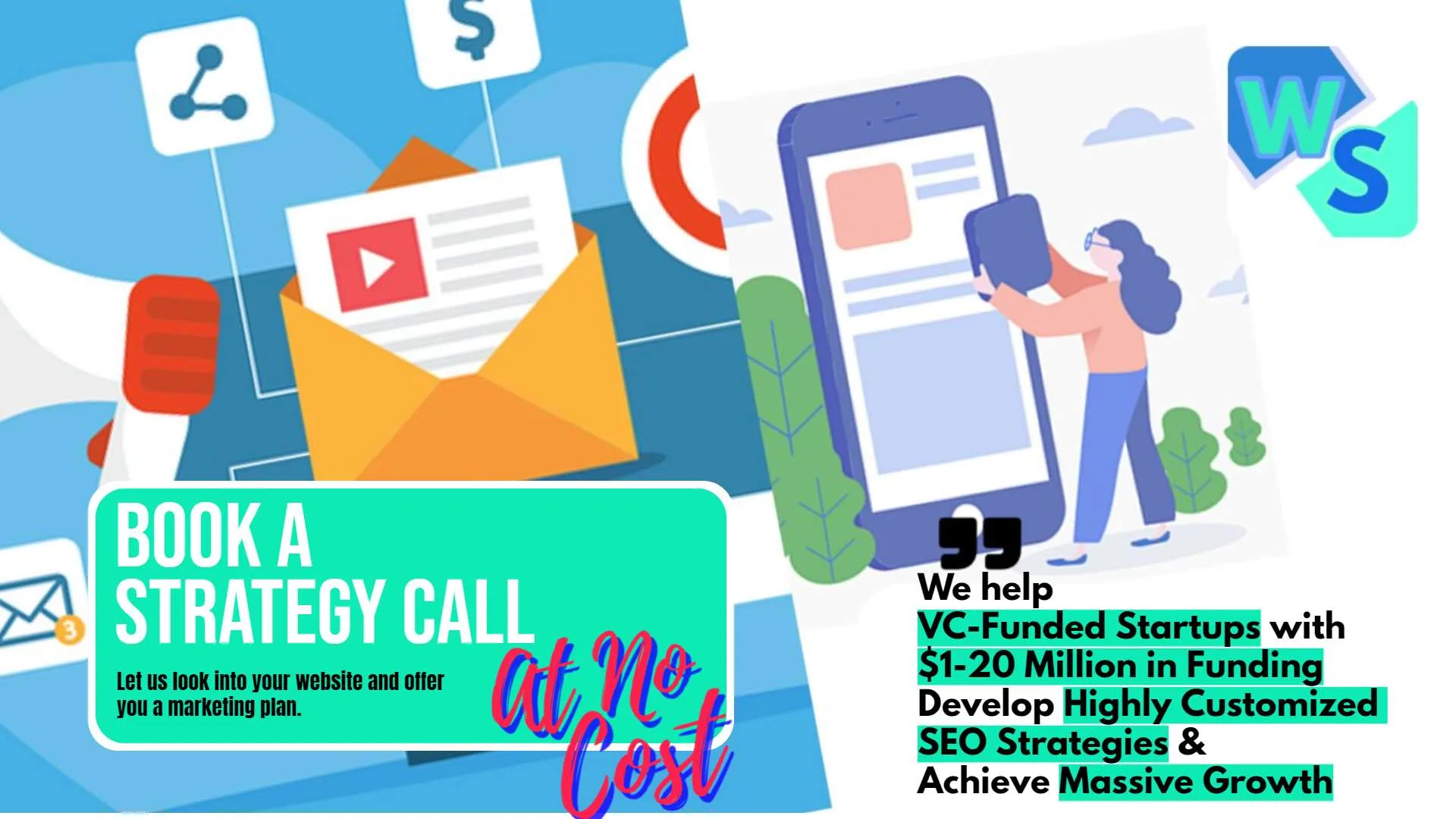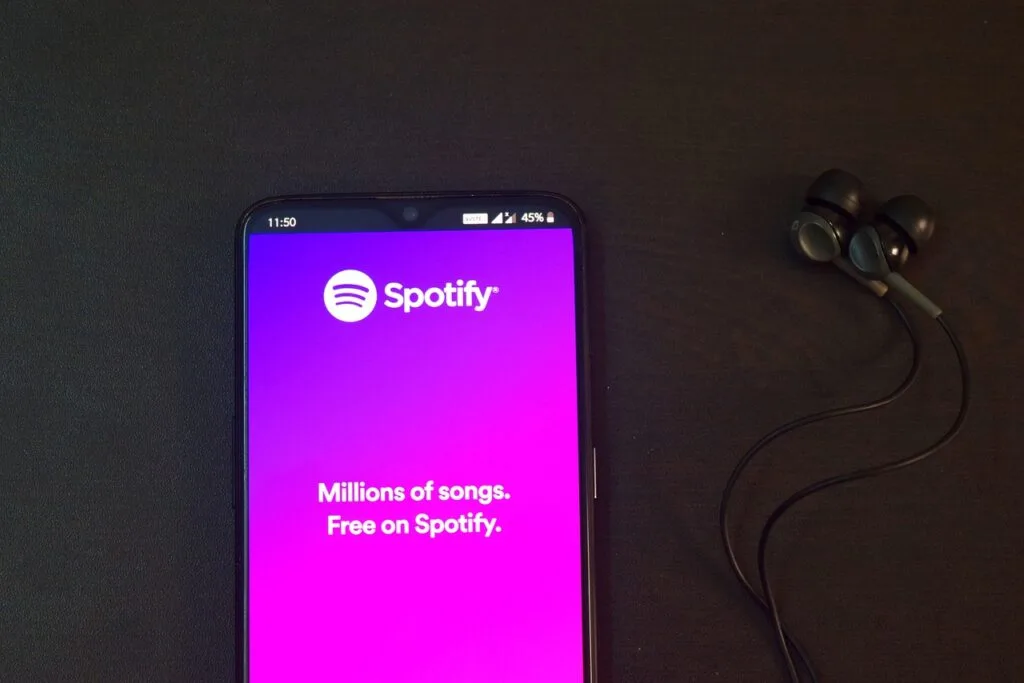This Article has been revised, edited and added to, by Poulomi Chakraborty.
- Understanding Millennials and Gen Z
- Engaging Millennials with Tailored Content Marketing Strategies
- Engaging Gen Z with Tailored Content Marketing Strategies
- Building a Bridge Between Millennials and Gen Z
- Understanding Commonalities and Differences
- Tailoring Content for Multigenerational Appeal
- Adapting Content Formats
- Utilizing Cross-Platform Strategies
- Engaging Through Influencers and Brand Ambassadors
- Creating Interactive and Participatory Content
- Emphasizing Social Responsibility
- Personalizing the Customer Experience
- Leveraging Data and Analytics
- Creating a Unified Brand Experience
- Content Marketing Tactics for Specific Platforms
- Content Themes and Topics That Resonate
- Implementing and Refining Your Strategy
- Brands Successfully Engaging Millennials and Gen Z
- Future Trends in Content Marketing for Millennials and Gen Z
- The Rise of Interactive Content
- The Importance of Ethical Marketing
- Personalized and Data-Driven Content
- Emphasis on Community Building
- Short-Form and Snackable Content
- Authenticity and User-Generated Content
- Embracing Social Commerce
- Focus on Diversity and Inclusion
- Continued Growth of Influencer Marketing
- Conclusion
In today’s digital age, brands are vying for the attention of Millennials and Gen Z. These two generations have distinct preferences and behaviors when it comes to consuming content. Understanding these differences is crucial for creating content marketing strategies that truly resonate. Both generations grew up with technology, but their experiences and attitudes are shaped by different cultural and technological landscapes. To effectively engage them, we need to dig deep into their unique characteristics and craft tailored content strategies that speak directly to their needs and desires.
Understanding Millennials and Gen Z

Who are Millennials and Gen Z?
Millennials, also known as Generation Y, were born between 1981 and 1996. They are currently in their mid-20s to early 40s, balancing careers, family life, and financial responsibilities. This generation witnessed the rise of the internet, social media, and smartphones. They value experiences, authenticity, and convenience.
Gen Z, on the other hand, were born between 1997 and 2012. They are currently in their early teens to mid-20s. This generation has never known a world without the internet and social media. They are true digital natives, adept at using technology to connect, create, and consume content. They value diversity, inclusivity, and instant access to information.
Key Differences in Content Consumption
While both generations are tech-savvy, their content consumption habits differ significantly. Millennials prefer longer, more in-depth content that they can engage with on platforms like blogs, podcasts, and YouTube. They are more likely to read articles, listen to podcasts, and watch video tutorials. They value content that educates, entertains, and provides value.
Gen Z, however, favors short, bite-sized content that is visually engaging. Platforms like TikTok, Snapchat, and Instagram are their go-to sources for content. They prefer videos, memes, and interactive content that can be consumed quickly and shared easily. This generation has a shorter attention span, and they value content that is fast, fun, and highly shareable.
Why Tailored Content Matters
Creating tailored content is not just about using the right platform or format. It’s about understanding the underlying motivations and values of each generation. Millennials are drawn to content that offers practical advice, helps them solve problems, and improves their lives. They appreciate brands that are authentic, transparent, and socially responsible.
Gen Z, on the other hand, is looking for content that resonates with their identity and values. They want to see diversity and inclusion reflected in the content they consume. They value brands that are bold, innovative, and willing to take a stand on social issues. Creating content that speaks to these values is key to capturing their attention and loyalty.
Crafting a Strategy
To effectively engage both Millennials and Gen Z, marketers need to develop a deep understanding of each generation’s preferences and behaviors. This involves conducting research, analyzing data, and staying up-to-date with the latest trends. It also means being flexible and willing to experiment with different types of content and platforms.
Creating a tailored content strategy involves several steps. First, define your target audience and their key characteristics. Next, identify the platforms and formats that are most popular with each generation. Then, develop content that aligns with their values and interests. Finally, measure and analyze the performance of your content to continually refine and improve your strategy.
Engaging Millennials with Tailored Content Marketing Strategies

Understanding Millennial Values and Preferences
Millennials are a unique generation shaped by significant technological advancements and socio-economic shifts. They value experiences over material possessions and prioritize personal growth and self-improvement. This generation is also known for its emphasis on authenticity and transparency. Brands that are genuine, socially responsible, and ethical resonate more with Millennials.
Choosing the Right Platforms
To engage Millennials effectively, it’s essential to be present on the platforms they frequent. Millennials are avid users of social media, particularly Facebook, Instagram, and LinkedIn. They also consume a lot of content on YouTube and are increasingly listening to podcasts. Understanding where they spend their time online allows you to tailor your content strategy to meet them where they are.
Creating Valuable Content
Millennials seek content that adds value to their lives. Educational content that offers practical advice, tutorials, and how-tos is highly appealing. They appreciate content that helps them learn new skills, solve problems, and make informed decisions. Blogs, long-form articles, and video tutorials are effective formats for delivering this type of content.
Emphasizing Authenticity and Transparency
Millennials are skeptical of traditional advertising and prefer brands that are transparent and authentic. They value honesty and are quick to support brands that share their values. Showcasing behind-the-scenes content, sharing user-generated content, and being open about your brand’s practices and values can build trust and loyalty among Millennials.
Leveraging Influencer Marketing
Influencer marketing is particularly effective for reaching Millennials. They trust recommendations from influencers they follow and admire. Collaborating with influencers who align with your brand values can help you reach a broader audience and add credibility to your content. Ensure that the influencers you partner with are genuinely passionate about your products or services to maintain authenticity.
Fostering Community and Engagement
Millennials value community and are more likely to engage with brands that foster a sense of belonging. Encourage interaction and engagement by creating content that invites discussion and participation. Social media platforms are ideal for this, as they allow for direct communication and community building. Hosting live Q&A sessions, webinars, and interactive posts can help you connect with Millennials on a deeper level.
Social Responsibility and Sustainability
Millennials are highly conscious of social and environmental issues. They prefer brands that are committed to sustainability and social responsibility. Highlighting your brand’s efforts in these areas through content can resonate deeply with this generation. Share stories about your sustainable practices, community involvement, and charitable initiatives to show that your brand cares about more than just profits.
Measuring Success and Adapting
To ensure your content strategy is effective, it’s crucial to measure and analyze its performance. Track key metrics such as engagement rates, website traffic, and conversions to see what’s working and what’s not. Use this data to continuously refine your strategy and make data-driven decisions. Be flexible and willing to adapt your approach based on the insights you gather.
Engaging Gen Z with Tailored Content Marketing Strategies

Understanding Gen Z Values and Preferences
Gen Z is a highly diverse and socially conscious generation. They value inclusivity, authenticity, and instant access to information. Growing up in the digital age, they are accustomed to a fast-paced, constantly connected world. This generation is skeptical of traditional marketing tactics and prefers brands that are genuine and take a stand on important issues.
Choosing the Right Platforms
Gen Z spends a significant amount of time on visual and interactive platforms such as TikTok, Snapchat, and Instagram. They also enjoy streaming content on YouTube and participating in online communities like Discord. Being active on these platforms is crucial for reaching and engaging Gen Z.
Creating Short, Engaging Content
Gen Z has a shorter attention span and prefers quick, engaging content that they can consume on the go. Short-form videos, memes, and interactive content are highly effective. TikTok, with its short, dynamic videos, is particularly popular among Gen Z. Create content that is visually appealing, entertaining, and easily shareable to capture their attention.
Emphasizing Diversity and Inclusion
Gen Z values diversity and inclusion and expects brands to reflect these values in their content. Showcase a diverse range of voices, perspectives, and experiences in your content. Be authentic and avoid tokenism; genuine representation matters. Highlighting your brand’s commitment to inclusivity can build strong connections with Gen Z.
Leveraging User-Generated Content
User-generated content (UGC) is powerful for engaging Gen Z. They trust content created by their peers more than traditional advertising. Encourage your audience to create and share content related to your brand. This can include reviews, testimonials, challenges, and more. Reposting UGC on your brand’s social media channels not only builds trust but also fosters a sense of community.
Interacting in Real-Time
Gen Z values real-time interaction and communication with brands. They appreciate brands that are responsive and interactive. Use features like live streaming, real-time comments, and direct messages to engage with your audience. Hosting live events, Q&A sessions, and interactive polls can create a dynamic and engaging experience for Gen Z.
Taking a Stand on Social Issues
Gen Z expects brands to take a stand on social and political issues. They are more likely to support brands that align with their values and are vocal about important causes. Be transparent about your brand’s stance on various issues and back it up with concrete actions. This can build loyalty and trust among Gen Z consumers.
Measuring Success and Adapting
As with any content strategy, it’s essential to measure the success of your efforts and adapt accordingly. Monitor key metrics such as engagement, reach, and conversions to understand what resonates with Gen Z. Use this data to continuously refine your strategy and ensure you’re meeting their needs and preferences.
Building a Bridge Between Millennials and Gen Z
Understanding Commonalities and Differences
While Millennials and Gen Z have distinct characteristics, they also share some common values and behaviors. Both generations are highly tech-savvy and value authenticity, transparency, and social responsibility. They both seek meaningful connections with brands and appreciate content that adds value to their lives. Understanding these commonalities can help you create a unified content strategy that appeals to both generations while still addressing their unique preferences.
Tailoring Content for Multigenerational Appeal
Creating content that resonates with both Millennials and Gen Z requires a nuanced approach. Focus on producing high-quality, authentic content that reflects your brand’s values and resonates with your audience’s interests. Use storytelling to create a narrative that connects emotionally with both generations. Incorporate diverse perspectives and voices to ensure inclusivity.
Adapting Content Formats
To appeal to both generations, it’s essential to use a variety of content formats. For Millennials, longer-form content such as blogs, podcasts, and in-depth videos are effective. For Gen Z, short-form videos, memes, and interactive content are more engaging. Consider repurposing content to suit different formats and platforms. For example, a detailed blog post can be broken down into a series of short, engaging videos for TikTok or Instagram.
Utilizing Cross-Platform Strategies
Both Millennials and Gen Z are active on multiple platforms, but their preferences vary. Create a cross-platform strategy that ensures your content is visible and engaging across different channels. For Millennials, focus on platforms like Facebook, Instagram, LinkedIn, and YouTube. For Gen Z, prioritize TikTok, Snapchat, Instagram, and YouTube. Ensure your messaging is consistent across all platforms, but tailor your content to fit the unique style and format of each one.
Engaging Through Influencers and Brand Ambassadors
Influencer marketing can be a powerful tool for reaching both Millennials and Gen Z. Identify influencers who have a strong following among both generations and align with your brand values. Collaborate with these influencers to create authentic, engaging content that resonates with their audiences. Consider developing a brand ambassador program that includes influencers from both generations to broaden your reach and enhance your credibility.
Creating Interactive and Participatory Content
Both Millennials and Gen Z appreciate interactive and participatory content. Engage your audience through live streaming, Q&A sessions, and interactive polls. Encourage user-generated content by hosting challenges, contests, and community-driven campaigns. Interactive content not only captures attention but also fosters a sense of community and engagement.
Emphasizing Social Responsibility
Highlighting your brand’s commitment to social responsibility is crucial for engaging both Millennials and Gen Z. Showcase your efforts in sustainability, diversity, and social impact through your content. Share stories and updates about your brand’s initiatives and encourage your audience to get involved. This not only builds trust and loyalty but also aligns your brand with the values of both generations.
Personalizing the Customer Experience
Personalization is key to engaging both Millennials and Gen Z. Use data and insights to tailor your content and marketing messages to the individual preferences and behaviors of your audience. Personalized recommendations, targeted content, and customized experiences can enhance engagement and drive conversions. Show your audience that you understand their needs and preferences by delivering relevant and personalized content.
Leveraging Data and Analytics
Importance of Data-Driven Decisions
To create effective content strategies for Millennials and Gen Z, it’s essential to leverage data and analytics. Understanding your audience’s behaviors, preferences, and engagement patterns allows you to make informed decisions and optimize your content strategy. Use analytics tools to track key metrics such as engagement rates, website traffic, and conversions. Analyzing this data helps you identify what’s working and what needs improvement.
Segmenting Your Audience
Segmenting your audience allows you to tailor your content more effectively. Create detailed audience personas for both Millennials and Gen Z based on demographic, psychographic, and behavioral data. Use these personas to guide your content creation and marketing efforts. Segmenting your audience also enables you to deliver more personalized and relevant content, enhancing engagement and driving results.
Monitoring Trends and Insights
Staying up-to-date with the latest trends and insights is crucial for engaging Millennials and Gen Z. Monitor industry trends, social media conversations, and cultural shifts to understand what’s resonating with your audience. Use this information to create timely and relevant content that captures attention and drives engagement. Being proactive and responsive to trends helps you stay ahead of the curve and maintain a competitive edge.
A/B Testing and Experimentation
A/B testing and experimentation are essential for optimizing your content strategy. Test different content formats, messaging, and visuals to see what resonates best with your audience. Use A/B testing to compare the performance of different versions of your content and make data-driven decisions. Experimentation allows you to continuously refine and improve your strategy, ensuring you’re delivering the most effective content.
Analyzing Competitor Strategies
Analyzing your competitors’ content strategies can provide valuable insights and inspiration. Identify what’s working well for your competitors and consider how you can apply similar tactics to your own strategy. Look for gaps and opportunities in the market that you can capitalize on. Competitive analysis helps you stay informed and make strategic decisions to enhance your content marketing efforts.
Creating a Unified Brand Experience
Consistent Messaging and Branding
Creating a unified brand experience across all touchpoints is crucial for engaging Millennials and Gen Z. Ensure your messaging and branding are consistent across all platforms and channels. This consistency builds trust and reinforces your brand identity. Use a cohesive brand voice and visual style to create a seamless experience for your audience.
Integrating Online and Offline Experiences
Both Millennials and Gen Z value seamless online and offline experiences. Integrate your digital and physical marketing efforts to create a cohesive brand experience. Use online channels to drive traffic to offline events and vice versa. Create interactive and engaging experiences that bridge the gap between online and offline interactions. This integration enhances brand loyalty and engagement.
Building Long-Term Relationships
Building long-term relationships with Millennials and Gen Z requires a focus on engagement, loyalty, and community. Create content that fosters a sense of connection and belonging. Engage with your audience regularly and respond to their feedback and comments. Show appreciation for your audience’s support through personalized messages, exclusive content, and special offers. Building strong relationships with your audience drives long-term loyalty and advocacy.

Content Marketing Tactics for Specific Platforms
Facebook: Engaging Millennials
Facebook remains a popular platform among Millennials, providing a space for both personal and professional connections. To engage Millennials on Facebook, create a mix of informative and entertaining content. Share blog posts, videos, infographics, and live streams that offer value and spark discussions. Utilize Facebook Groups to build communities around specific interests related to your brand. These groups foster engagement and loyalty, as members feel they are part of a community.
Instagram: Bridging Both Generations
Instagram is a versatile platform that appeals to both Millennials and Gen Z. For Millennials, focus on high-quality images, behind-the-scenes content, and Instagram Stories to provide a deeper connection with your brand. For Gen Z, leverage Reels and IGTV for short, engaging videos. User-generated content works well across both generations, so encourage your audience to share their experiences with your brand. Use hashtags strategically to increase visibility and reach a broader audience.
LinkedIn: Professional Content for Millennials
LinkedIn is particularly effective for engaging Millennials who are focused on their careers. Share content that offers professional development, industry insights, and networking opportunities. Publish articles on LinkedIn Pulse, share updates about your brand’s achievements, and participate in relevant groups. Webinars and virtual events can also attract Millennials seeking to expand their knowledge and connect with industry peers.
TikTok: Capturing Gen Z’s Attention
TikTok is the go-to platform for Gen Z, known for its short, engaging videos. To capture Gen Z’s attention, create fun, creative, and authentic content. Participate in trending challenges, use popular music, and incorporate humor to make your videos stand out. Collaborate with TikTok influencers who resonate with your target audience. Consistency is key, so post regularly and interact with your audience through comments and duets.
YouTube: Long-Form Content for Both Generations
YouTube is a valuable platform for both Millennials and Gen Z, offering a mix of long-form and short-form content. For Millennials, create in-depth tutorials, vlogs, and educational videos that provide value and insights. For Gen Z, focus on shorter, visually appealing videos, including challenges, unboxings, and reaction videos. Use YouTube’s community features, such as posts and live chats, to engage with your audience and build a loyal following.
Snapchat: Quick, Visual Content for Gen Z
Snapchat is another platform popular with Gen Z, known for its ephemeral, visual content. Use Snapchat to share behind-the-scenes glimpses, product teasers, and interactive content like polls and quizzes. Snapchat’s Discover feature allows you to publish longer-form content, such as stories and videos, that can reach a broader audience. Leverage Snap Ads to capture attention with engaging, vertical videos.
Content Themes and Topics That Resonate

Personal Development and Self-Improvement
Both Millennials and Gen Z are interested in personal development and self-improvement. Create content that offers tips, advice, and insights on topics such as career growth, mental health, and wellness. Share stories of personal growth and transformation to inspire your audience. Podcasts, blog posts, and video series are effective formats for this type of content.
Social and Environmental Responsibility
Content that highlights your brand’s commitment to social and environmental responsibility resonates strongly with both generations. Share your sustainability initiatives, community involvement, and charitable efforts. Use storytelling to showcase the impact of your efforts and encourage your audience to get involved. Transparency and authenticity are crucial, so be open about your brand’s goals and progress.
Technology and Innovation
Technology and innovation are key interests for both Millennials and Gen Z. Create content that explores the latest tech trends, innovations, and how they impact everyday life. Share product reviews, tech tutorials, and insights from industry experts. Engage your audience with interactive content, such as polls and quizzes, to gauge their interest and preferences.
Diversity and Inclusion
Diversity and inclusion are important values for both Millennials and Gen Z. Create content that celebrates diverse perspectives and promotes inclusivity. Highlight stories and experiences from different backgrounds and communities. Use your platform to amplify underrepresented voices and advocate for social change. This not only builds trust but also aligns your brand with the values of your audience.
Entertainment and Pop Culture
Entertainment and pop culture are significant interests for Gen Z and Millennials alike. Create content that taps into current trends, popular shows, and cultural moments. Memes, reaction videos, and commentary on pop culture events can be highly engaging. Collaborate with influencers and content creators who are popular in these niches to expand your reach.
Implementing and Refining Your Strategy
Setting Clear Goals and Objectives
To ensure the success of your content marketing strategy, start by setting clear goals and objectives. Define what you want to achieve, whether it’s increasing brand awareness, driving website traffic, or boosting engagement. Align your content strategy with these goals and use them to guide your content creation and distribution efforts.
Creating a Content Calendar
A content calendar helps you plan and organize your content efforts. It ensures consistency and allows you to schedule content around key dates and events. Include a mix of content types and themes to keep your audience engaged. Regularly review and update your content calendar to stay responsive to new trends and opportunities.
Collaborating with a Team
Content marketing often requires collaboration with a team of writers, designers, and marketers. Establish clear roles and responsibilities within your team to ensure a smooth workflow. Use project management tools to track progress and stay organized. Encourage collaboration and creativity to produce high-quality, engaging content.
Measuring Performance
Measuring the performance of your content is crucial for understanding what works and what doesn’t. Use analytics tools to track key metrics such as engagement rates, website traffic, and conversions. Analyze this data to identify trends and insights that can inform your strategy. Regularly review your performance metrics and adjust your approach as needed.
Continuous Improvement
Content marketing is an ongoing process that requires continuous improvement. Stay up-to-date with the latest trends and best practices in the industry. Be willing to experiment with new formats and platforms to see what resonates with your audience. Gather feedback from your audience and use it to refine your strategy. By continuously improving your content efforts, you can build a strong, engaged audience and achieve your marketing goals.
Brands Successfully Engaging Millennials and Gen Z

Nike: Leading with Purpose and Innovation
Nike is a prime example of a brand that successfully engages both Millennials and Gen Z through purpose-driven marketing and innovative content strategies. By aligning with social causes and leveraging cutting-edge technology, Nike has built a loyal following across both generations.
Nike’s “Just Do It” campaign, which has been a staple of the brand for decades, resonates with Millennials who value perseverance and self-improvement. The campaign features stories of athletes overcoming obstacles, which inspire and motivate this audience. Additionally, Nike’s emphasis on social issues, such as gender equality and racial justice, aligns with Millennial values of social responsibility and authenticity.
For Gen Z, Nike has embraced platforms like TikTok and Snapchat, creating short, engaging content that showcases its products in fun and relatable ways. The brand often collaborates with influencers and athletes popular with Gen Z, ensuring its messaging is authentic and relevant. Nike’s use of augmented reality (AR) and virtual reality (VR) in marketing campaigns also appeals to Gen Z’s love of innovative and immersive experiences.
Glossier: Community-Driven Content
Glossier is a beauty brand that has mastered the art of community-driven content, making it a favorite among both Millennials and Gen Z. The brand’s success can be attributed to its focus on building a strong, engaged community and leveraging user-generated content (UGC).
Millennials appreciate Glossier’s emphasis on authenticity and transparency. The brand often features real customers in its marketing campaigns, sharing their stories and showcasing their unique beauty routines. Glossier’s blog, “Into The Gloss,” offers in-depth articles and interviews with beauty experts and enthusiasts, providing valuable insights and fostering a sense of community.
For Gen Z, Glossier has a strong presence on Instagram and TikTok, where it shares visually appealing, short-form content. The brand encourages its followers to share their own beauty looks using the hashtag #Glossier, creating a steady stream of UGC that feels authentic and relatable. By highlighting diverse voices and celebrating individuality, Glossier effectively connects with Gen Z’s values of inclusivity and self-expression.
Spotify: Personalized Experiences
Spotify is another brand that excels at engaging both Millennials and Gen Z through personalized experiences and innovative content strategies. The music streaming service leverages data and technology to deliver customized content that resonates with its diverse audience.
For Millennials, Spotify offers curated playlists and podcasts that cater to their varied interests. The platform’s “Discover Weekly” feature uses algorithms to recommend new music based on listening habits, providing a personalized and seamless user experience. Spotify’s partnerships with popular podcasters and musicians also help attract and retain Millennial users.
Gen Z, on the other hand, appreciates Spotify’s interactive and social features. The platform’s integration with social media allows users to share their favorite tracks and playlists with friends, fostering a sense of community. Spotify’s collaboration with TikTok influencers and its use of interactive ads and video content further engage this younger audience. By continuously evolving and adapting to user preferences, Spotify remains a go-to platform for both generations.
Starbucks: Building a Loyal Community
Starbucks has successfully built a loyal community by engaging both Millennials and Gen Z through personalized experiences and social responsibility. The coffee giant’s content marketing strategy focuses on creating meaningful connections and fostering a sense of belonging.
Millennials are drawn to Starbucks’ emphasis on quality, convenience, and ethical sourcing. The brand’s content often highlights its commitment to sustainability and social impact, which aligns with Millennial values. Starbucks’ mobile app, with its personalized rewards and seamless ordering experience, also appeals to Millennials who value convenience and technology.
For Gen Z, Starbucks leverages platforms like Instagram and Snapchat to share visually appealing, engaging content. The brand often uses Stories and interactive features to connect with its younger audience. Starbucks’ focus on inclusivity and diversity, showcased through its marketing campaigns and community initiatives, resonates with Gen Z’s values. By creating a welcoming and inclusive brand experience, Starbucks successfully engages both generations.
Patagonia: Purpose-Driven Marketing
Patagonia is a brand that has built a strong reputation through its commitment to environmental sustainability and purpose-driven marketing. By aligning its brand values with those of Millennials and Gen Z, Patagonia has cultivated a loyal and engaged audience.
Millennials appreciate Patagonia’s focus on quality and durability, as well as its dedication to social and environmental causes. The brand’s content often highlights its efforts in conservation and sustainability, providing in-depth stories and updates on various initiatives. Patagonia’s transparency and authenticity resonate with Millennials who value ethical consumption.
For Gen Z, Patagonia’s activism and bold stance on environmental issues are particularly appealing. The brand uses platforms like Instagram and TikTok to share impactful, visually engaging content that raises awareness and encourages action. Patagonia’s involvement in youth-led climate movements and its collaboration with young activists further strengthen its connection with Gen Z. By staying true to its values and engaging with its audience on important issues, Patagonia successfully bridges the gap between Millennials and Gen Z.
Future Trends in Content Marketing for Millennials and Gen Z
The Rise of Interactive Content
As technology continues to evolve, interactive content is becoming increasingly popular among both Millennials and Gen Z. Augmented reality (AR), virtual reality (VR), and interactive videos offer immersive experiences that capture attention and drive engagement. Brands that leverage these technologies can create memorable and engaging content that resonates with their audience.
The Importance of Ethical Marketing
Ethical marketing is more important than ever as both Millennials and Gen Z demand transparency and social responsibility from brands. Companies that prioritize ethical practices, such as sustainable sourcing, fair labor practices, and social impact initiatives, will continue to build trust and loyalty among these generations. Communicating these efforts through authentic and transparent content is crucial for success.
Personalized and Data-Driven Content
Personalization and data-driven content will remain key strategies for engaging Millennials and Gen Z. Leveraging data to understand audience preferences and behaviors allows brands to deliver highly relevant and personalized content. This not only enhances the user experience but also drives better results and higher engagement rates.
Emphasis on Community Building
Building and nurturing communities will continue to be a focus for brands looking to engage Millennials and Gen Z. Creating spaces where audiences can connect, share, and engage with each other fosters a sense of belonging and loyalty. Brands that invest in community-building efforts and create meaningful interactions will stand out in a crowded digital landscape.
Short-Form and Snackable Content
The demand for short-form and snackable content will continue to grow, particularly among Gen Z. Platforms like TikTok and Instagram Reels have set the standard for quick, engaging content that can be consumed on the go. Brands should focus on creating visually appealing, concise content that captures attention and encourages sharing.
Authenticity and User-Generated Content
Authenticity will remain a driving force in content marketing. Both Millennials and Gen Z value real, relatable content that reflects their experiences and values. User-generated content (UGC) will continue to be a powerful tool for brands to build trust and engagement. Encouraging and showcasing UGC allows brands to create authentic connections with their audience.
Embracing Social Commerce
Social commerce is on the rise, with platforms like Instagram and TikTok introducing shopping features that allow users to purchase products directly from the app. This trend is particularly appealing to Gen Z, who prefer seamless and convenient shopping experiences. Brands that integrate social commerce into their content strategy can drive sales and enhance the customer journey.
Focus on Diversity and Inclusion
Diversity and inclusion will remain critical for engaging Millennials and Gen Z. Brands that authentically represent diverse voices and perspectives in their content will build stronger connections with their audience. Highlighting diversity and promoting inclusivity in all aspects of content marketing will continue to be essential for success.
Continued Growth of Influencer Marketing
Influencer marketing will continue to be a powerful strategy for reaching both Millennials and Gen Z. Collaborating with influencers who have a genuine connection with their audience can amplify your brand message and build credibility. Micro-influencers, in particular, offer highly engaged and loyal followings that can drive meaningful results.
Conclusion
Engaging Millennials and Gen Z requires a nuanced and thoughtful approach to content marketing. These generations value authenticity, transparency, and social responsibility, and they engage with content that reflects their interests and values. Brands must leverage a variety of platforms, from Facebook and Instagram to TikTok and Snapchat, to meet their audiences where they are.
Personalization, user-generated content, and interactive experiences are crucial for capturing attention and building loyalty. As technology and social trends evolve, staying agile and responsive will be key to maintaining relevance and fostering meaningful connections with both Millennials and Gen Z. By prioritizing these strategies, brands can create lasting relationships and drive significant engagement with these powerful consumer groups.
Read Next
- Influencer Marketing in the Age of Privacy Concerns: Ensuring Compliance and Building Trust
- The Importance of A/B Testing in Influencer Marketing: Optimizing for Maximum Impact
- Influencer Marketing for the Home and Living Sector: Collaborating with Lifestyle Influencers
- The Role of Interactive Content in Enhancing Influencer Marketing Campaigns
- Influencer Marketing for the Finance Sector: Collaborating with Financial Experts






















Comments are closed.